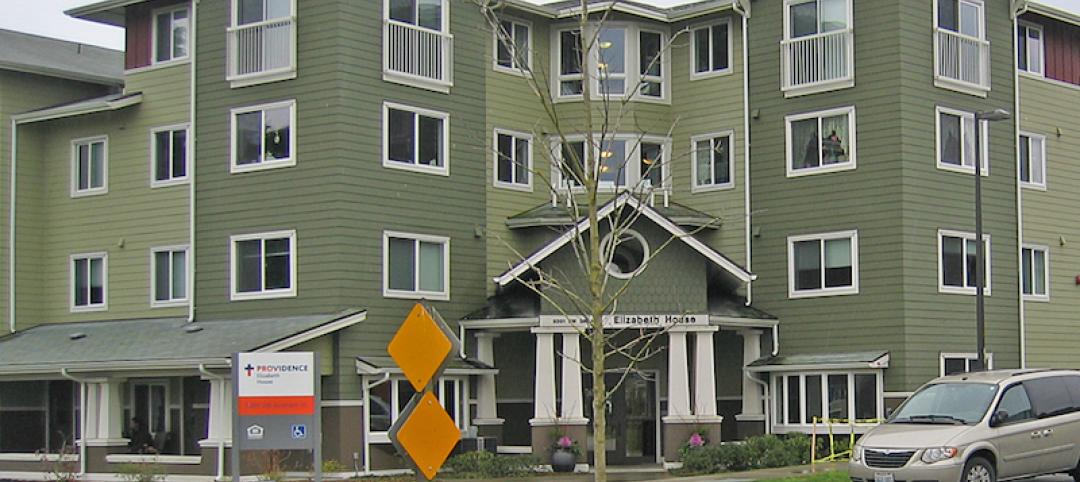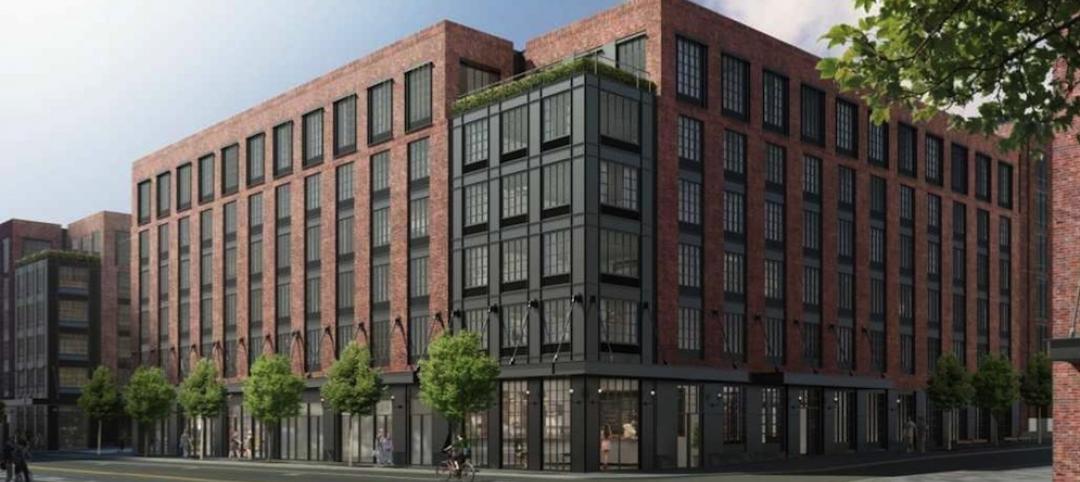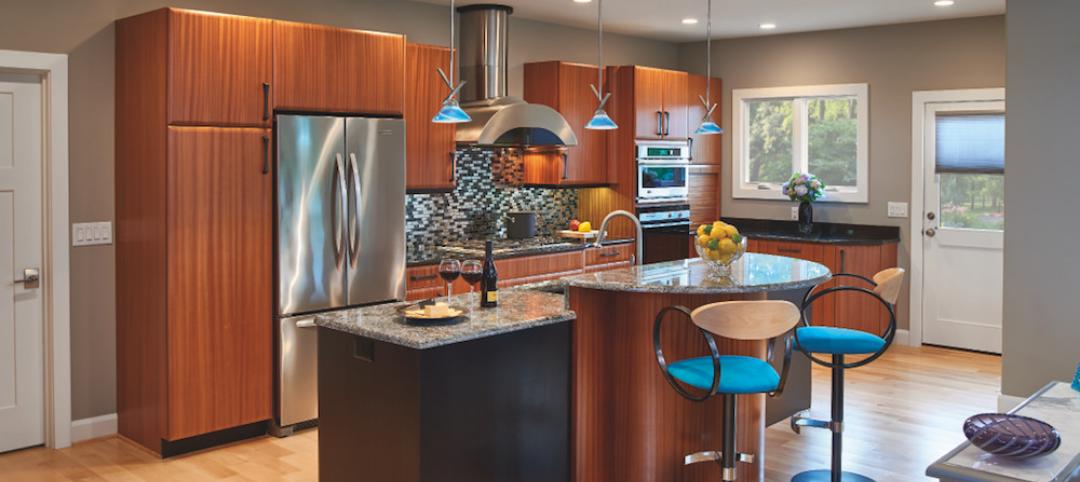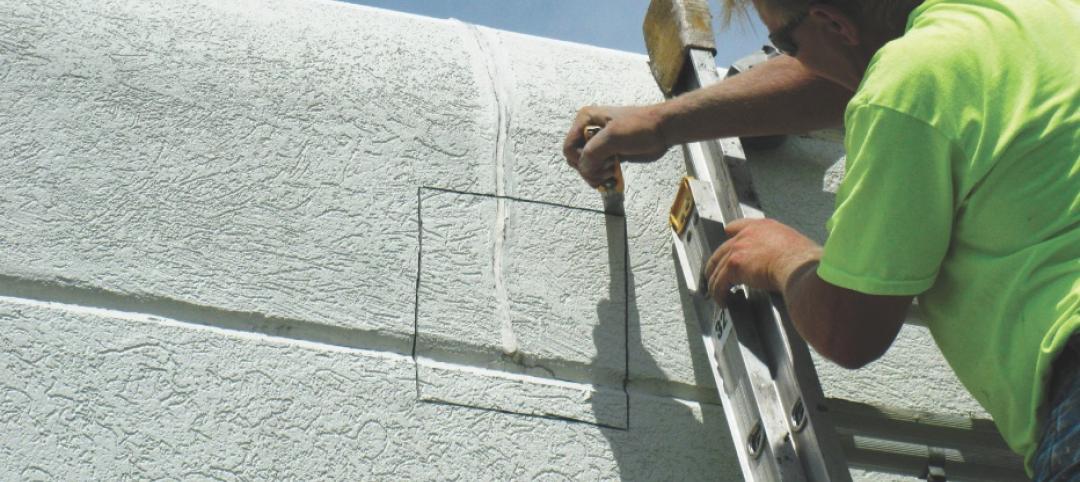Cities and suburbs all over the country face the same problem: not enough affordable housing for their own police, firefighters, EMTs, teachers, and lower-level administrative staff in schools and government agencies. C. Kat Grimsley, PhD, has a suggestion: If your school district is building a new school, build housing in the air space above it and put lower-paid public employees at the front of the line to live there, at subsidized rental rates.
Grimsley, who directs the master’s in real estate program at George Mason University, won a competition for best paper from RCLCO Real Estate Advisors for this idea. She tested her theory out using the third-largest school district in Virginia, Loudoun County, where the Area Median Income is $134,464, but where there’s a need for 10,000 affordable rental units for families.
Her scheme envisions a three-story concrete school at the base topped by a three-story wood-framed apartment building. (Such a configuration would meet most local fire codes for wood buildings.) This could yield 42 one-bedroom units (for, say, young single teachers or EMTs making almost nothing), and six each of two- and three-bedroom apartments for families, for a total of 54. The mix could be juggled depending on local needs.
There's a lot to like about this idea. First, land costs for the residential structure would go down to zero, or there could be some cost sharing with the school district. But still a bargain. The school district would already be paying to bring in utilities to the site, so that would be another savings for the apartment portion of the project. The scheme would also step around the “taking issue,” since any land that the school district acquired through eminent domain would be primarily for a public purpose (building the school), not a private one.
Parking could be shared. The school would get use of the parking lot from, say, 7 a.m. to 4 p.m. on school days; the residents could use it after 4 and at night.
Teachers could roll out of bed in the morning and take the elevator to school (there would be separate elevators and entrances for the school and residences). Police, firefighters, EMTs, and school maintenance staff could live in the same town where they work, instead of having to live in a more distant town where the housing is more reasonably priced.
Grimsley focused on using her scheme for new school construction, but the real payoff would come with using existing schools. Loudoun County, for example, has more than 90 education facilities for its 81,622 students. Building in the air rights over an active K-6 would be difficult to impossible, of course. But what about that ground-level parking lot? Could it be converted to structured parking (at school district cost) with housing above? That would be a piece of cake for any builder. School districts need to look into their real estate portfolios to see if there’s land on school properties that could be turned into housing.
Sure, Grimsley’s modest proposal needs more work, but something tells me there’s a brilliant idea here. Do you agree? Disagree? Send me your thoughts at the email below.
Related Stories
Multifamily Housing | Feb 24, 2016
Senior housing sector experiences record-setting year, says CBRE
Senior housing occupancy is at its highest level since 2007, and 2015 was a record year for sales and institutional transactions, according to CBRE.
Industry Research | Feb 22, 2016
8 of the most interesting trends from Gensler’s Design Forecast 2016
Technology is running wild in Gensler’s 2016 forecast, as things like virtual reality, "smart" buildings and products, and fully connected online and offline worlds are making their presence felt throughout many of the future's top trends.
Multifamily Housing | Feb 10, 2016
Miami review board recommends approval for Arquitectonica’s top-heavy condo tower
The 57-story Elysee Miami will offer residents impeccable views and plenty of amenities.
Multifamily Housing | Feb 5, 2016
Design guidelines for retail space in NYC affordable housing projects released
Aimed at designing efficient, flexible ground-floor space.
Multifamily Housing | Feb 2, 2016
10 top bathroom design trends for 2016
Floating vanities, tricked-out showers, and freestanding tubs highlight the top bathroom design trends, according to a survey of kitchen and bath design professionals by the National Kitchen and Bath Association.
Multifamily Housing | Feb 1, 2016
Top 10 kitchen design trends for 2016
Charging stations, built-in coffeemakers, and pet stations—these are among the top kitchen design trends for the coming year, according to a new survey of kitchen and bath designers by the National Kitchen & Bath Association.
Codes and Standards | Jan 22, 2016
Treasury Dept. will start crackdown on illicit money in luxury real estate
The move is expected to impact high-end condo development.
| Jan 14, 2016
How to succeed with EIFS: exterior insulation and finish systems
This AIA CES Discovery course discusses the six elements of an EIFS wall assembly; common EIFS failures and how to prevent them; and EIFS and sustainability.
Multifamily Housing | Jan 8, 2016
Manager of New York’s first micro-unit development inks pact with ‘personal butler’ service
The co-living platform Ollie is leasing its initial building, in New York, with housekeeping and grocery shopping available via Hello Alfred.
Urban Planning | Jan 4, 2016
The next boomtown? Construction and redevelopment sizzle in San Diego
The city's emission-reduction plan could drive influx into downtown

















